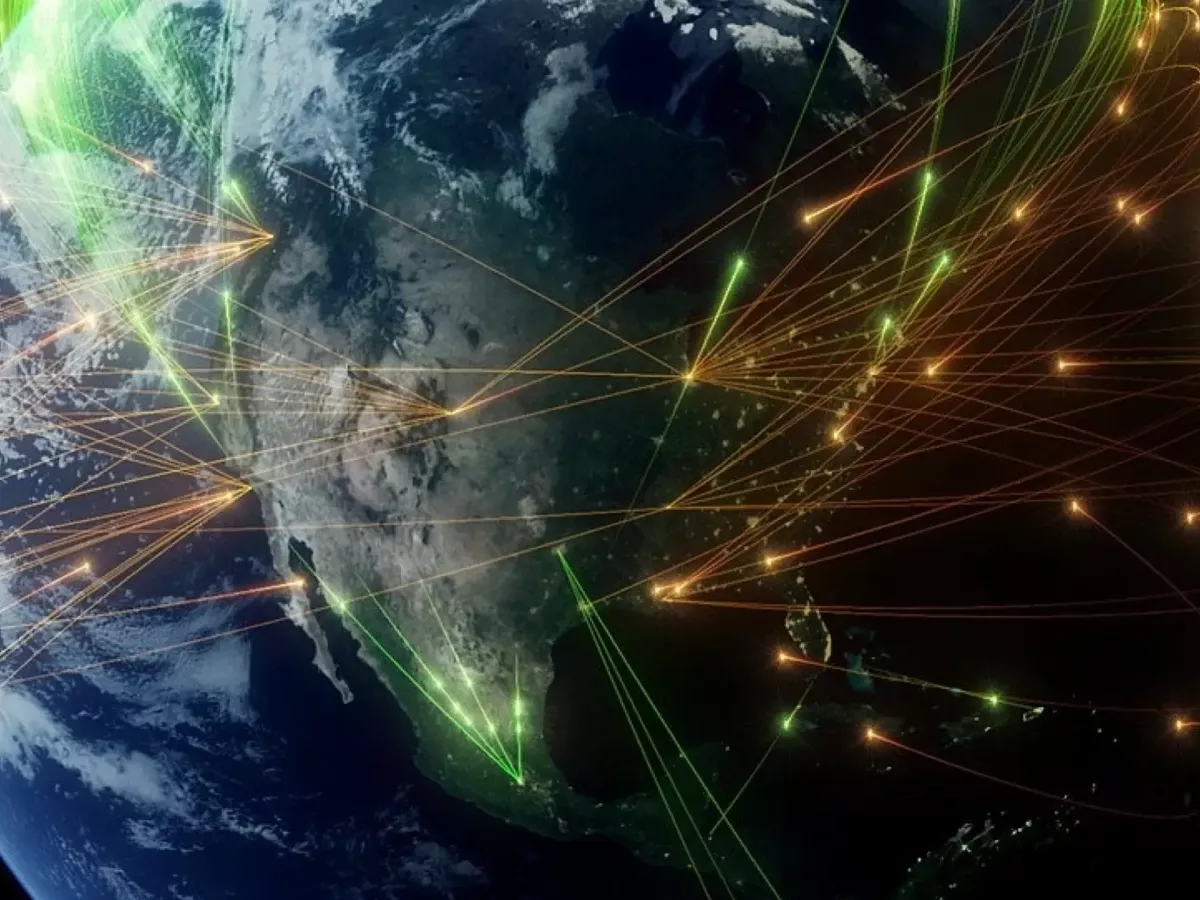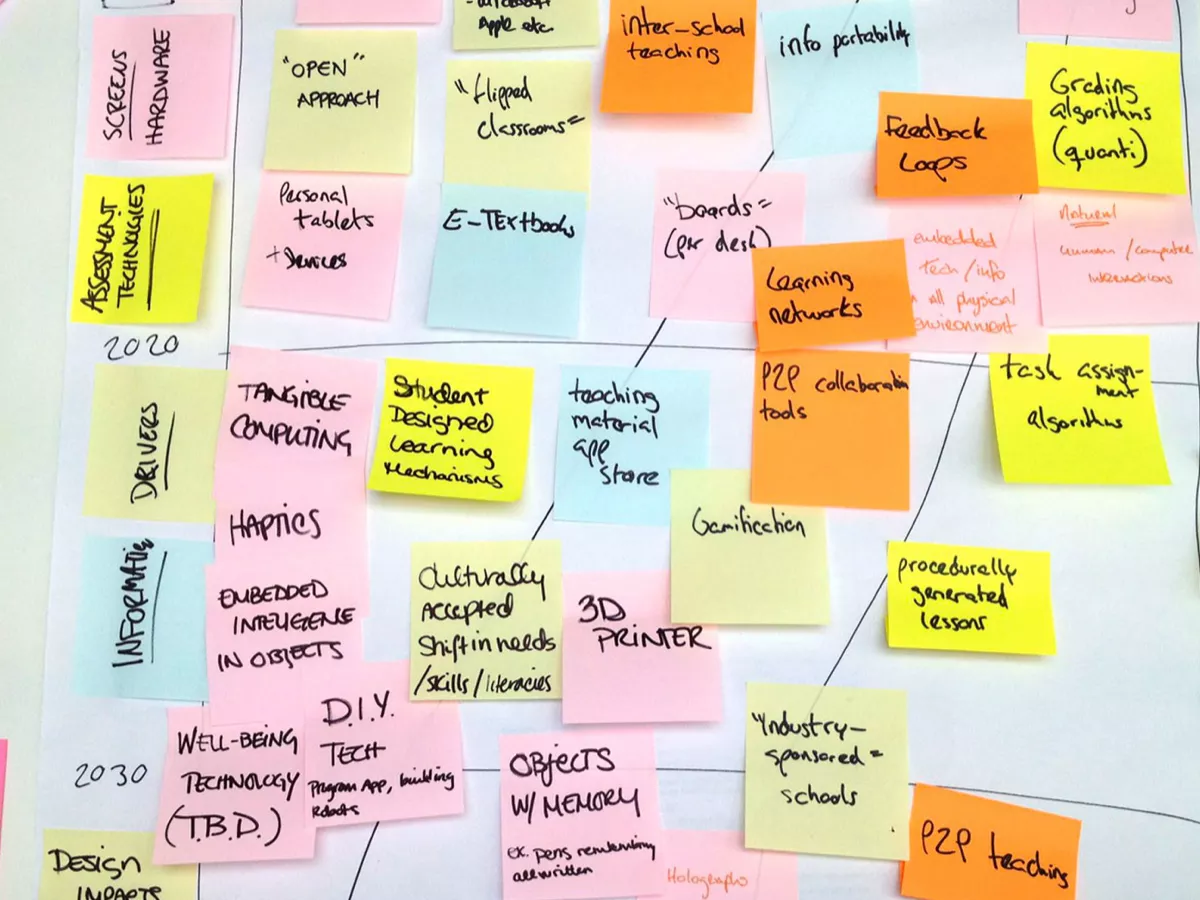Keynote given for an Amsterdam CEO Summit via THNK.

Good morning Please keep number two million in mind.
But first I want to tell you why I study technology.

I grew up in Sweden thirty one years ago. Nerdy kid. Total introvert. A video-gaming, book-reading, documentary-watching, five-year old.
If you haven’t been to Sweden, it’s night most of the time and everyone is wired. If you give kids broadband and time to get bored, you breed genius.
And that’s how everyone I know ended up in tech. Not in banking. Not in football... I don’t have a single friend who’s a lawyer or a doctor.

Kids with broadband.
Kids who get technology. Who like me, taught themselves everything on their Commodore 64s.
I learned English playing King’s Quest, And drawing in PhotoStyler. And reflexes playing Commander Keen.
So did everyone around me. Kids with broadband teach themselves. They don’t do business school and career paths. They don’t even aim inside the status quo. Kids with broadband become billionaires making the next Angry Birds.
So of course I’m fascinated. This is new!
I’ve spent my life poking at technology Putting it under the microscope. Picking its quirks and patterns.

And a few years ago, something big started happening. Napster and Skype and Instagram killed music and phones and cameras. Coders became rock stars.
Suddenly Amazon is the new FedEx.
Suddenly we’re mining asteroids and falling asleep in self-driving cars.
Suddenly we’re all revolutionaries and pirates.
My generation is liquid, we find passionate projects, and don’t look for jobs.
I’ve lived in half a dozen countries in the last few years and have no reason to slow down.
I’m starting to see a seismic shift in values and beliefs. Of people embracing technology wholeheartedly. Taking it to the core of their business, no matter the industry.
Technology isn’t just changing everything around us. Technology is everything around us.

Every language we’ve ever spoken. Every city we’ve built. All technology.
We are standing on years of innovation, layering and layering, building on its past..
A hundred thousand years ago, Our ancestors cut their leathers using flint Over time, they started finding new uses for the flint.
Started improving their flint tools, increasing it Extending its handle, growing its head and sharpening its edge, Suddenly, they had an axe. And with an axes, they conquered the forests.
Paving way for agriculture. livestock, even bread, and becoming a new species.
Agriculture from flint.
Technology is part of humanity.
You can’t untangle one thing from the other.
It doesn’t work that way.
We are part of it.

There is no one city of the future. We will see a diverse ecology of cities.
So let’s do a thought experiment with a sci-fi flavor.
We’re gonna take a single emerging technology that exists today and extrapolate it decades years into the future, and see what that city would look like.
The point of these stories is not for them to be realistic per se, but for you to decide which parts should.

And we’ll start by imagining what a city might look like if 3D-printers keep growing.
You down walk the street, looking pleased at your work. Everything smells fresh. Fresh paint, fresh plastic, freshly cut grass, fresh aluminum, the fresh smell cement. You hear the whirring of machines slowing down. One by one, trucks the size of basketball fields drive away. Last week, this particular patch of desert was empty. All you gave them was a blueprint, and the city took shape. A city printed by machines. A robot workforce of giant toasters on wheels.
Printed the walls, and the floors, and the parks, and the coffee shops.
You’re very proud of your work.

Tomorrow, this place will be crawling, ready to experience Peak City, a week-long pop-up city where people dress like in the movies and live in houses from Vanity Fair.
People wearing instaprinted outfits, carrying props and gadgets, cameras and lights: it’s going to be a wonderful spectacle.
The makeup, the scripts, the colorful lighting -- everything carefully crafted to create the perfect mood, the perfect setting for a perfect week.
A seven-day city to play a game of make-believe.
And when they’re gone, the city turns to dust.
And you get back to your roadshow, on to build another one.

And now we’re going to see a completely different kind of city, a city where everything is automatic, but where we’ve lost something.
Wake up, says the eye-pleasing projection on your ceiling, it’s 3pm.
You slept late, but it’s time for the game.
You walk towards your shower, almost stepping on the robot jumping up from under your bed to change your sheets.

Shower’s quick, shampooing is fast, dried and tossed, and your outfit was delivered last night via drone.
Car’s ready. Door’s open. Calendar tells you where to go.
No traffic of course. Like blood cells in veins, our cars pump through roads at superhuman speeds.
You arrive at the game on time. No shouts, no jeers, no confusion. Everyone staring through invisible screens. Invisible arrows suspended in your vision leading to your seat.
A drone floats meters off the ground, making sure you’ve paid.
The stadium is packed for a monday afternoon. Back in your days, people had somewhere better to be on monday afternoons. But ever since we stopped working, that changed.
Time isn’t really an issue anymore.
A chime calls your attention. The team anthems are sung.
The crowd cheers, everyone is happy everyone’s excited.
This should be a good game.

And finally, let’s see what would happen if a city the size of Amsterdam could be home to a billion people.

I’ve been eating for hours.
Chewing away on a mountain of blue ice cream floating in a pink cloud. But something’s off. I’m hungry. I’m not hungry here, I’m hungry outside. I excuse myself from my feasting buddies and float down home, really pissed I have to disconnect.
If I pay people to check my food intake. Then why the hell am I hungry?
I take a last look at the polka-dot oceans below.
People running naked on the beach and floating away with each other as I fade out.
I wake up in a room the size of an office cubicle.
My eyes adjust to general sense of gray.
My mouth feels forgotten. Empty IV hanging next to me.
No wonder I’m starving.
Remove the IV needle, and the waste collectors, and the plugs from my head.
Stand up feeling a frail version of myself. A shrunken-down-faded copy of who I am. My house without mirrors and windows.
I just want to get back in.
Back to my body, back to my friends.

And back to the talk.
Technology evolves because of us. We have complete agency over this process. We need to reframe our relationship with technology.
It’s not about what technology is doing to us, It’s about how are feeding the beast.
We need ask uncomfortable questions about designer babies and sex bots if we want to see where world is heading.
We need to observe the unintended consequences of the technological past before judging its future.
We need to think of technology as a function over time and embrace the discomfort that comes with moving forward.

Everything is accelerating.
Today is the slowest day you will ever live through.
Tomorrow will be faster.

So what about the kids with broadband?
What about the hackers and makers, and the builders and the breakers?
The pirates and revolutionaries?
They’re sitting in a garage with very low overhead, asking themselves the difficult questions.
How they build a factory without workers. Or to build a monopoly without revenue. Or to build a thriving organization without a leader.
Kids with broadband fix every problem they find. They don’t ask for permission. They will keep speeding up way past 65.
Kids with broadband are an accelerating phenomenon that cannot be legislated away.

My wired winters in Stockholm might be rare.
But I think the Goldilock conditions for creating Zuckerbergs are replicable anywhere.
At country level, at city level, even at company level.
I think you can harness that creative power.
I’m not here to sell you a seminar on how to do it.
I’m upfront about my message: The fifty of you, Listening to the one of me, Have two million brains working for you right now.
You employ two million people.
I ran the numbers.
You have two million potentially ingenious minds who want to individually solve the problems that you collectively can’t.
That’s why we’re complaining at the water cooler. We think we’re smarter than you!
To harness two million minds, you have to embrace radical change.
You need to aim exponentially upwards,
undo chains of hierarchy, and replace the comfortable stress of remunerated satisfaction with the uncomfortable thrill of a fast future.

Thank you.



